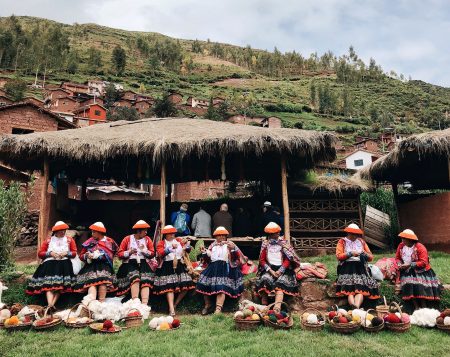Integrating Indigenous Peoples’ knowledge and rights into global biodiversity targets
A recent IIED blog by Krystyna Swiderska, principal researcher in the IIED Natural Resources research group, outlines recent research that highlights the need for traditional knowledge and the rights of Indigenous Peoples and local communities (IPLC) to be integrated across all post-2020 biodiversity targets. The majority of the earth’s biodiversity is located in a quarter […] August 18, 2021
A recent IIED blog by Krystyna Swiderska, principal researcher in the IIED Natural Resources research group, outlines recent research that highlights the need for traditional knowledge and the rights of Indigenous Peoples and local communities (IPLC) to be integrated across all post-2020 biodiversity targets.
The majority of the earth’s biodiversity is located in a quarter of the world’s land that is managed by 0.5 billion Indigenous Peoples. However, only four out of the 21 proposed biodiversity targets to be negotiated at COP15 mention Indigenous Peoples and local communities (IPLC) or traditional knowledge.
A new study – ‘Indigenous knowledge and values: key for nature conservation’ – by IIED and partners working with Indigenous Peoples in Peru, Kenya, India and China explored whether Indigenous worldviews and cultural values promote or hinder sustainable and equitable development. The findings showed that the Global Biodiversity Framework’s (GBF) vision of ‘living in harmony with nature’ is deeply embedded in the core values, religious beliefs and customary laws of Indigenous societies. In all four case studies, Indigenous values were found to promote biodiversity-rich agroecological practices and sustainable wild harvesting, supporting nutritious diets and climate resilience.
Additionally, there is evidence from across the globe that lands that are characterised as ‘natural’, ‘intact’ or ‘wild’ have long histories of human use. Hunter-gatherers, subsistence farmers and pastoralists have created biodiversity-rich cultural landscapes and sustained them for millennia. Many areas that have been given protection exclude the IPLC, and such areas are losing biodiversity. This study adds to recent research showing that current economic policies are eroding protective Indigenous knowledge and driving biodiversity loss.
The blog concludes with affirming the need for governmental policymakers worldwide to recognize that IPLC leadership and traditional knowledge are critical for biodiversity success, and that this must be incorporated at the upcoming COP15 discussions.
Read the full IIED blog and download ‘Indigenous knowledge and values: key for nature conservation’ to learn more.
